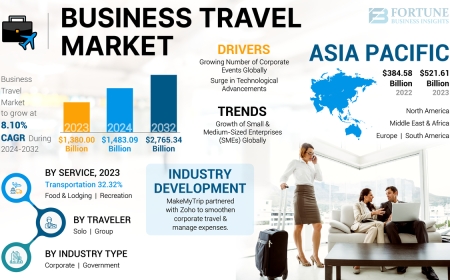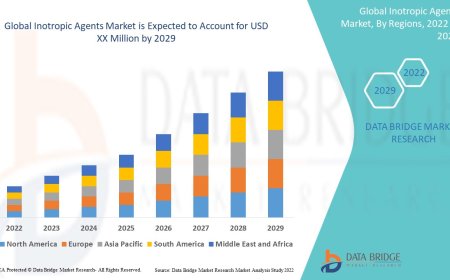Top 10 Tips for Hosting Amazing Events
Introduction Hosting an event—whether it’s a corporate conference, a wedding, a product launch, or a community gathering—is more than just arranging chairs and catering. It’s about creating an experience people remember, trust, and recommend. In today’s hyper-connected world, where expectations are high and attention spans are short, the difference between a good event and an unforgettable one lie
Introduction
Hosting an eventwhether its a corporate conference, a wedding, a product launch, or a community gatheringis more than just arranging chairs and catering. Its about creating an experience people remember, trust, and recommend. In todays hyper-connected world, where expectations are high and attention spans are short, the difference between a good event and an unforgettable one lies in trust. Trust is the invisible thread that binds attendees to the organizer, the venue, the content, and the overall experience. When people trust that every detail has been thought through, they relax, engage, and participate fully. This guide reveals the top 10 tips for hosting amazing events you can trustbacked by industry best practices, real-world case studies, and proven strategies that deliver consistency, professionalism, and emotional resonance.
Why Trust Matters
Trust is not a luxury in event planningits the foundation. An event without trust is like a house built on sand: no matter how beautiful the decorations or how impressive the speaker, it will crumble under the weight of unmet expectations. Attendees today are not just looking for entertainment; theyre seeking authenticity, reliability, and value. They want to know that their time, money, and emotional energy are being respected. When trust is present, attendees feel safe, valued, and heard. Theyre more likely to return for future events, recommend them to others, and engage deeply with the content. Conversely, a single missteplate start, poor communication, broken technology, unprofessional staffcan shatter trust in seconds and damage your reputation long after the event ends.
Trust is built through consistency, transparency, and attention to detail. Its in the clarity of your communication before the event, the responsiveness during it, and the follow-up afterward. Its in the way your team greets guests, the accuracy of your schedule, the quality of your food, and the accessibility of your venue. Every touchpoint becomes a moment to reinforce trustor to erode it. The most successful event organizers dont rely on flashy gimmicks or expensive production. They rely on systems, preparation, and human-centered design. This article will show you exactly how to build that trust, step by step, using ten actionable, practical, and proven tips.
Top 10 Tips for Hosting Amazing Events You Can Trust
1. Define a Clear Purpose and Audience
Before you book a venue, send invites, or design a logo, ask yourself: Why are we hosting this event? Who is it for? A vague purpose leads to a scattered experience. A clear purpose creates focus, alignment, and trust. Whether your goal is to educate, celebrate, network, or launch a product, articulate it in one sentence. Then define your ideal attendee: What are their pain points? What do they hope to gain? What language do they speak? This clarity becomes your north star for every decisionfrom the keynote speaker to the menu options. When every element of the event aligns with a defined purpose and audience, attendees feel seen and understood. Thats when trust begins to form. For example, a tech startup hosting a product demo for early adopters should tailor content to technical depth and innovation, not general interest. A nonprofit hosting a fundraising gala should emphasize impact stories and donor recognition, not entertainment for entertainments sake. Clarity eliminates confusion and signals professionalism.
2. Plan with PrecisionUse a Master Timeline
Trust is born from predictability. Attendees trust events that run on time, where transitions are smooth, and nothing feels rushed or chaotic. The key to predictability is a detailed, phased master timeline. Start at least 90 days in advance and break down every task: vendor contracts, permits, AV setup, signage, staff briefings, rehearsal schedules, and contingency plans. Assign ownership for each task and set clear deadlines. Use shared digital tools like Asana, Trello, or Notion to keep the team aligned. Include buffer time for delays510 minutes between sessions, extra setup hours before the event, and a 15-minute grace period for speakers. A well-structured timeline doesnt just keep things on track; it communicates to attendees that youve thought of everything. When the event flows seamlessly, guests dont notice the effortthey only feel the calm. Thats the hallmark of a trusted event.
3. Choose and Vet Vendors Relentlessly
Your vendors are your extended team. A single unreliable caterer, a glitchy projector, or an unprofessional photographer can undermine your entire event. Never choose vendors based solely on price. Instead, vet them rigorously: request references, review past work, and ask for detailed proposals. Conduct site visits if possible. For food and beverage, taste the offerings. For AV, test equipment in the actual space. For transportation or security, verify licenses and insurance. Look for vendors who communicate proactively, respond quickly, and offer solutionsnot excuses. Once youve selected them, formalize expectations in writing: arrival times, setup requirements, contact protocols, and cancellation policies. A trusted event is built on trusted partners. When your vendors are reliable, your credibility multiplies. Attendees notice when the coffee is hot, the Wi-Fi works, and the lighting enhances the mood. These are not small detailstheyre trust signals.
4. Prioritize Communication at Every Stage
Communication is the heartbeat of trust. From the first email invite to the final thank-you note, every message should be clear, consistent, and timely. Create a communication calendar that includes pre-event reminders, day-of instructions, real-time updates (via app or SMS), and post-event follow-ups. Avoid jargon. Use plain language. Confirm attendance, provide parking and accessibility info, share the agenda, and notify attendees of any changes immediately. If a speaker cancels, dont waitannounce the replacement right away. If the weather affects outdoor seating, send a heads-up with alternatives. Transparency builds confidence. People trust organizers who keep them informed, even when things change. Use multiple channels: email, SMS, event apps, social media, and even printed materials at check-in. Repetition reinforces clarity. And always include a point of contactsomeone attendees can reach if they have questions. No one should ever feel lost or ignored.
5. Design for Accessibility and Inclusion
Trust is not possible if some attendees feel excluded. An event that ignores accessibility doesnt just fail a legal standardit fails a moral one. Ensure your venue is ADA-compliant: ramps, elevators, wide aisles, accessible restrooms. Provide sign language interpreters, real-time captioning, and transcripts for presentations. Offer dietary options for allergies, religious needs, and plant-based preferences. Use inclusive language in all communicationsavoid gendered terms, assume diverse family structures, and respect pronouns. Consider sensory needs: provide quiet rooms for overstimulated guests, reduce harsh lighting, and offer noise-canceling headphones. When you design for inclusion, you signal that every person matters. Attendees who feel accommodated dont just attendthey advocate. They tell others, This event truly sees me. Thats the kind of trust that turns casual participants into loyal followers.
6. Train and Empower Your Team
Even the best-laid plans fall apart without a capable, confident team. Your staff, volunteers, and contractors are the human face of your event. Theyre the ones greeting guests, answering questions, troubleshooting issues, and setting the tone. Train them thoroughly: role-play common scenarios, provide a detailed run-of-show, and equip them with a printed emergency guide. Empower them to make decisionslike offering a replacement drink if someones glass spills, or redirecting a confused guest without needing to call a manager. A well-trained team responds with calm, kindness, and competence. Thats what attendees remember. Avoid hiring people who look good in a uniform but lack empathy or problem-solving skills. Trust is built in small moments: a smile, a helpful gesture, a timely solution. Your team is your most powerful tool for creating that trust.
7. Test Technology Before the Event
Technology can elevate an eventor ruin it. Live streaming, mobile apps, registration kiosks, audio systems, lighting cues, and presentation software: all must be tested under real conditions. Schedule a full tech rehearsal at least 24 hours before the event. Test microphones on the actual stage, check internet bandwidth with multiple devices, verify login credentials for apps, and ensure backup power sources are functional. Have a tech support person on-site with spare cables, batteries, and a laptop. Never rely on Wi-Fi alonehave a cellular hotspot ready. If youre using hybrid elements, test cross-platform compatibility. When technology works flawlessly, it becomes invisible. Attendees dont think about the streamthey focus on the message. But when it fails, the frustration is immediate and personal. A single frozen screen can break trust faster than a hundred poorly printed programs. Prevention is always better than repair.
8. Collect and Act on Real-Time Feedback
Trust isnt just built before and during the eventits reinforced in the moment. Use real-time feedback tools to gauge attendee sentiment: QR codes linking to quick polls, live chat on the event app, or even simple paper surveys at breakout sessions. Ask specific questions: How clear was the speaker? Was the venue easy to navigate? Did you feel welcome? Dont wait until the end. If multiple attendees mention the coffee is cold, fix it immediately. If the seating is too tight, rearrange it. Showing that you listen and adapt in real time sends a powerful message: your experience matters. This isnt about pleasing everyoneits about demonstrating responsiveness. Attendees who see their feedback acted upon feel valued. That emotional connection transforms satisfaction into loyalty. And loyal attendees become your best marketers.
9. Follow Up with Purpose and Personalization
The event doesnt end when the last guest leaves. In fact, the most powerful trust-building moments happen afterward. Send a personalized thank-you email within 24 hoursmention the attendees name, reference something they engaged with (a question they asked, a session they attended), and include key takeaways or recordings. Share photos from the event, especially if you captured them with consent. Offer a short survey for deeper feedback, but keep it under five questions. If you promised a resource (a slide deck, a white paper, a discount), deliver it promptly. Dont just blast a generic newslettersegment your audience and tailor your message. A corporate attendee might want industry insights; a community guest might appreciate photos of the kids zone. Thoughtful follow-up shows you didnt just host an eventyou invested in a relationship. Thats how trust becomes long-term loyalty.
10. Document, Reflect, and Improve
Every event is a learning opportunity. After the final cleanup, gather your team for a structured debrief. Review what worked, what didnt, and why. Use your feedback data, vendor reports, and timeline deviations to create a post-event report. Identify patterns: Was the AV always an issue? Did the registration line always get long? Did speakers run over time because of poor timekeeping? Document these findings in a reusable playbook. Update your templates, checklists, and vendor contracts based on lessons learned. Dont repeat the same mistakes. Over time, this process turns one-off events into a trusted brand. Attendees begin to expect excellence from younot because youre lucky, but because youve built systems that deliver it consistently. Thats the ultimate form of trust: reliability over time. When people know what to expect from your events, they dont just attendthey plan ahead.
Comparison Table
Below is a side-by-side comparison of events built on trust versus those that lack it. The differences are not subtlethey are fundamental and measurable.
| Aspect | Events Built on Trust | Events Lacking Trust |
|---|---|---|
| Purpose & Audience | Clear, specific, and consistently reflected in every element. | Vague or mixed messaging; content feels generic or off-target. |
| Timeline & Execution | Strict adherence to schedule; smooth transitions; buffer time included. | Chaos, delays, last-minute changes; attendees left waiting. |
| Vendors | Thoroughly vetted, professional, and communicative partners. | Selected on price alone; unreliable, unresponsive, or unqualified. |
| Communication | Clear, frequent, multi-channel, and proactive updates. | Infrequent, confusing, or only reactiveattendees left in the dark. |
| Accessibility | Inclusive design: physical, sensory, dietary, and linguistic needs met. | Assumes all attendees are the same; ignores diverse needs. |
| Team Preparedness | Trained, empowered, empathetic staff who solve problems independently. | Underprepared, passive, or unsure how to respond to issues. |
| Technology | Tested, backed up, and operated by skilled support staff. | Unreliable, untested, and prone to failure during critical moments. |
| Real-Time Feedback | Actively collected and acted upon during the event. | Ignored or collected too late to make a difference. |
| Post-Event Follow-Up | Personalized, timely, and value-drivenreinforces connection. | Generic, delayed, or absentfeels like an afterthought. |
| Continuous Improvement | Systematic documentation and refinement for future events. | No reflection; same mistakes repeated year after year. |
FAQs
Whats the most common mistake event organizers make when trying to build trust?
The most common mistake is assuming that aesthetics equal professionalism. A beautifully designed brochure or elegant decor wont compensate for poor communication, unreliable vendors, or disengaged staff. Trust is built through reliability, not appearances. Focus on delivering consistent, seamless experiences rather than chasing trends.
How far in advance should I start planning a trusted event?
For medium to large events, begin planning at least 36 months in advance. This allows time for vendor selection, venue booking, detailed scheduling, and communication campaigns. Smaller events still require 48 weeks to ensure quality and avoid last-minute stress that erodes trust.
Can I build trust with a small budget?
Absolutely. Trust is not about spending moreits about spending wisely. Prioritize communication, staff training, and attendee experience over expensive dcor. A well-organized, welcoming, and responsive event on a modest budget will earn more trust than a lavish but disorganized one.
How do I handle a major issue during the event without losing trust?
Transparency and action are key. Acknowledge the issue quickly and honestlyWere experiencing a technical delay, and were working to resolve it. Then, take immediate steps to fix it and keep attendees informed. Offer a small gesture of goodwill if possible, like extended networking time or a complimentary drink. People forgive mistakesthey dont forgive silence or excuses.
Should I use an event app?
If your event has more than 50 attendees, yes. An event app centralizes schedules, maps, speaker bios, feedback tools, and networking features. It reduces confusion, improves communication, and provides a professional touch. Choose a simple, reliable platform and test it thoroughly before launch.
How do I know if my event was truly trusted by attendees?
Look for signs beyond attendance numbers: repeat registrations, organic social media mentions, referrals from past attendees, and positive survey responses that mention felt safe, knew what to expect, or everything just worked. These are indicators of deep, lasting trust.
Is it worth investing in professional event planners?
If youre hosting a complex or high-stakes event, yes. Professional planners bring systems, vendor networks, and crisis management experience that most individuals lack. Their expertise reduces risk and increases the likelihood of a seamless, trusted experience.
How do I make virtual or hybrid events feel trustworthy?
Hybrid events require extra attention to inclusion and tech reliability. Ensure remote attendees have the same access to content, Q&A, and networking as in-person guests. Use a stable platform, assign a dedicated tech host, and test audio/video for both audiences. Communicate clearly about how to participate. Trust in hybrid events comes from equitynot convenience.
Can one bad review ruin my events reputation for trust?
A single negative review can be damaging, but it doesnt have to define you. Respond professionally, acknowledge the concern, and outline what youve learned. Over time, consistent positive experiences and transparent communication will outweigh isolated incidents. Trust is cumulative.
Whats the one habit that separates trusted event organizers from the rest?
They think like attendeesnot like vendors or marketers. Before making any decision, they ask: How will this make the person in the front row feel? That mindset ensures every action serves human experience, not just logistics. Thats the essence of trust.
Conclusion
Hosting amazing events you can trust isnt about perfectionits about intentionality. Its about showing up with care, consistency, and clarity at every stage. The ten tips outlined here arent just best practices; theyre the pillars of a reputation that endures. When you define your purpose clearly, plan with precision, choose vendors wisely, communicate relentlessly, design inclusively, empower your team, test your tech, listen in real time, follow up thoughtfully, and reflect continuously, you dont just host eventsyou build relationships. And relationships are what turn attendees into advocates, and advocates into a community that returns year after year.
Trust isnt something you announce. Its something you demonstratethrough small actions, quiet competence, and unwavering reliability. In a world full of noise and distraction, the most powerful thing you can offer is calm, confidence, and care. Thats what makes an event not just memorable, but unforgettable. Start with one tip. Master it. Then add another. Over time, you wont just be an event organizeryoull be the name people trust before they even know whats on the agenda.


























